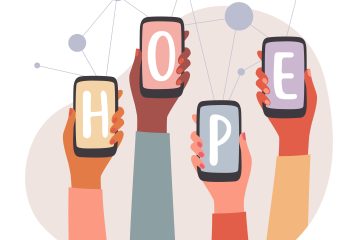
Clicktivism is quick, easy and powerful
Early criticisms of clicktivism lamenting the end of real activism have poisoned the well to the extent that the image conjured is one of someone sprawled lazily in an armchair scrolling through their mobile phone, liking and sharing, but not making much difference to politics. However, clicktivism is one of the most prevalent forms of contemporary political participation that is quick, easy and can be incredibly powerful when performed individually or as a collective. It is also a means of lowering the barriers to politics that dominant power structures and processes have put in place to restrict what politics is, and where it can be performed. Political participation has various definitions and contexts of use that concentrate on traditional processes …

Social Media and the Subscription Subject
There is a burgeoning element of social media: subscription services. One might assume that Elon Musk’s announcement of “Twitter Blue” was the spark for social media’s subscription service. In fact, taking a step back one could have seen the writing on the wall. An early and famous (yet implicit) statement on subscription services came from Mark Zuckerberg. In April 2018, Zuckerberg was brought to the US Senate to be questioned about Facebook’s role in the 2016 US Presidential election. During his appearance, former Senator Orrin Grant Hatch asked Zuckerberg, “In 2010… you said back then that Facebook would always be free. Is that still your objective?” to which Zuckerberg responded, “Senator, yes. There will always be a version of Facebook …

Researching political abuse online is vital; how we measure it, even more so
Back in November, the BBC published a report into the online abuse (or ‘toxicity’ as the report termed it) that MPs suffer on social media. The report was eight months in the making and put an AI tool that had been built by the BBC themselves at the heart of the research. However, upon the publishing of the research to much fanfare online, flaws in the report became swiftly apparent. The BBC had linked directly to the tool itself in the report, which allowed anyone to test the tool. Users began to test certain slurs, particularly those of a racialised nature. Highly offensive terms for Jewish, Black and Hispanic people went entirely unrecognised by the tool. Well known far-Right and …

The Principles of Stacktivism – Politics in the Age of the Platform
Those that define internet standards shape our thinking and hold the key to our freedom of communication—no trivial task. Yet tech policy is seen as boring, a yawn-inducing issue offloaded to engineers, corporate lawyers, research universities, and government ministries. In the previous age of global internet governance, regulations and protocols were outsourced to technocrats (and a few “civil society” NGOs agitating on the margins). However, in this age of “techno sovereignty,” where everything from 5G to TikTok is capable of causing geopolitical conflict, there is no more consensus. In short, we demand protocols, not platforms. But who’s going to get us there? Meet the stacktivists. What is the Stack? Benjamin Bratton’s The Stack (2016) can be useful to …

The Digital-Political in the Post-Ontological Era
It was once more or less assumed that the digital world was good for democracy. That turned out to be premature (see Jarzombek 2016). Because the digital was for so long embedded in narratives that emphasised supposed benefits of techno-sociability to society, the political face of the digital was slow to emerge, forcing those now interested in it to play catchup. When we now raise the question of how the digital intertwines itself with the political we jump to issues like privacy, surveillance, digital suppression, disinformation and failed governmental oversight. And yet, despite the laws and policies that have all been put in place, the situation is an oily mess that seems to have no provenance and certainly no easy …









